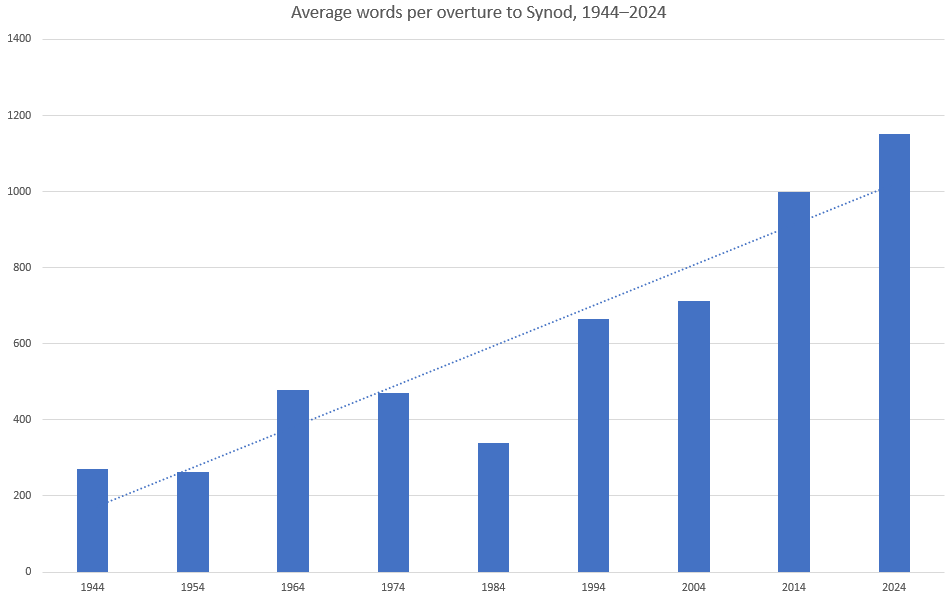Average word count of overtures to Synod, 1944–2024
Advisory committees are buried in paper. Here's why it's Bill Gates' fault.
I was looking at several gravamina overtures in this year’s Agenda for Synod. They felt wordy, repetitious, and scattered. Most had long, meandering introductions and preambles. One offered lots of historical context to provide clarity, but most of the context had nothing to do with what the overture asks for. Then, the parts of the overtures that actually do the overturing aren’t very clear, or they’re dividing requests too granularly.
At the other end of the process, an advisory committee in a windowless room at Calvin University will need to make sense of it all.
Have overtures to Synod always been this long?
No, it turns out:
For decades, overtures to Synod are, on average, between 200 and 400 less, and sometimes a lot less. Consider Overture 2 from Classis Orange City to Synod 1944:
“Classis expresses its preference to Synod of calling Missionaries to the field.”
That’s it.
That’s the entire Overture. No introduction. No grounds. It assumes context. It states exactly what it wants Synod to do.
But something happened between 1984 and 1994: the invention of the word processor. Word processors made it easy to write, edit, rewrite, and add to. For the first time, it truly became possible to write an overture by committee. Thanks to the PC, Synod is now drowning in paper.
(One of the overtures to Synod 1964 contained the entire text of a 7931-word study committee report, which I excluded from the data.)
There’s an oft-repeated quote, variously attributed to Cicero, Pascal, and Mark Twain: “I apologize for the length of this letter, but I didn't have time to make it shorter.”
It’s likely that if your overture exceeds 500 words, it’s not a good overture.
There are many such overtures in the 2024 Agenda.
The 1964 Agenda contains this gem of an overture from North Blendon CRC:
The consistory overtures Synod, concerning this square dancing at Calvin College, to either: (1) disapprove the decision ‘that this is allowable, wholesome Christian recreation;’ or, if not disapprove, then (2) to disapprove the decision to permit such activity at Calvin College; or, (3) by silence or public statement to uphold these decisions of the administration at Calvin.
One wonders if they are referring to square dancingism or square dancingality.
Thanks for reading,
Kent
